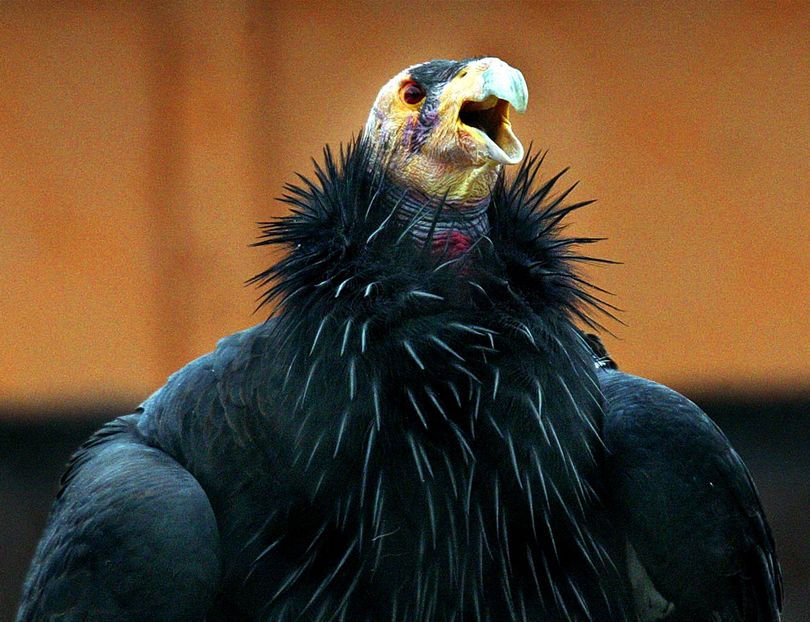Feds give Nez Perce $200,000 for introducing condors to Hells Canyon

ENDANGERED SPECIES -- Idaho’s Nez Perce Tribe as been awarded a $200,000 federal grant to pursue reintroducing the California condor in Hells Canyon.
Based on California's example, the use of lead ammunition for hunting is a potential issue in a swath of Idaho, Oregon and Washington.
The Nez Perce grant is a share of nearly $5 million in Tribal Wildlife Grants awarded by the U.S. Fish and Wildlife Service to fund 29 Native American fish and wildlife projects. The federal agency's announcement was made last week.
Of those funds, $964,163 will be awarded to tribes in Oregon, Washington and Idaho.
"The “Condors in Hells Canyon: an assessment of habitat and threats to successful reintroduction” project will conduct comprehensive field-based assessments of California condor nesting, roosting and foraging habitat within the greater Hells Canyon ecosystem," says FWS Director Dan Ashe in announcing the grants.
"The study will also provide valuable data on potential threats to condor reintroduction to the region and is the first step in a multi-level process to reintroduce condors to the region."
If you hunt in Idaho, this should alarm you," says Robert Deen, a Boise outdoor writer who has some perspective because of his cabin and connections in California.
Lead ammunition was originally banned in a portion of the condor’s range in Southern California. The problem was that condors – scavengers by nature – were being poisoned by eating lead in the gut piles and carcasses of animals shot by hunters. Fair enough.
Unfortunately, the concept was seized upon by anti-gun legislators, who expanded the lead ban statewide. Since condors aren’t found statewide, the rationale was changed to a “health issue,” claiming that children were at risk of lead poisoning from eating game.... This led many California sportsmen to conclude that it was simply a ruse to further the state’s anti-gun agenda.
However, many shooters are finding positive results in shooting copper bullets in terms of accuracy and performance. If cost and availability issues can be answered, the concern could be reduced.
Since 2003, the tribal wildlife grants have provided more than $72 million to Native American tribes for more than 420 conservation projects administered by federally recognized tribes.
The grants are provided exclusively to federally recognized tribal governments and are made possible under the Related Agencies Appropriations Act of 2002 through the State and Tribal Wildlife Grant program. Proposals for the 2017 grant cycle will be due in the fall of 2016. For additional information about Native American conservation projects and the Tribal Wildlife Grants application process, visit .
Other grants in the Pacific Northwest this year include:
- The Confederated Tribes of Coos, Lower Umpqua, and Siuslaw Indians will receive $96,635 for the Tenmile Lakes Basin Lamprey Conservation Project.
- The Lower Elwha Klallam Tribe will get $187,125 to study and document the re-colonization process lamprey in the Elwha River.
- The Sauk-Suiattle Indian Tribe was awarded $187, 400 for a population dynamics study on Mountain goats in the North Cascades.
- The Confederated Tribes of the Grand Ronde will get $124,240 to restore Oregon oak habitat at Rattlesnake Butte Wildlife Area.
- The Muckleshoot Indian Tribe will get $199,500 to manage black bear populations for sustainability and hunter opportunity in the White River watershed.
